The Benefits of Magnesium: What Supplements to Choose

Magnesium (Mg) is a chemical element that can be found in every living cell. The benefits of magnesium for the health, food sources of this element, best supplements on the market, recommended doses, and possible side effects: we have covered all these and numerous other topics.
1. What Is It?
The benefits of magnesium for the body are truly enormous. This mineral is:
- Important for all kinds of chemical reactions in cells
- Required for the synthesis of DNA and RNA
- Needed for the action of more than 300 enzymes
- Used for maintaining the right balance of ions (of sodium, calcium, and potassium) inside the cell
- Essential for the nervous system
On average, the human body contains about 25 grams of Mg, with most of this quantity being present in the bones and muscles.
2. Magnesium Deficiency
Mg deficiency is very common: a 2014 article makes an estimation that from 2.5 to 15% of the general population have low plasma Mg levels. The causes of this condition are varied and include:
- Low dietary intake of magnesium (a 2012 review states that nearly half of Americans consume less Mg than needed)
- Insufficient intake of vitamin B6
- Vitamin D deficiency (due to a lack of exposure to natural light or numerous other factors)
- Insufficient intake of selenium
- Gastrointestinal conditions that reduce Mg absorption in the stomach
- Kidney conditions that lead to increased excretion of Mg
- Use of diuretics (such as Lasix, Bumex, Aquazide H, Edecrin) and medicines like Cisplatin (a chemotherapy medication) and Ciclosporin (immunosuppressant medication) that significantly increase Mg excretion
- Use of certain types of antibiotics that block Mg absorption
- Use of medications like Digitalis (brings Mg inside the cells)
- Numerous genetic anomalies
- Alcohol abuse
- Frequent diarrheas
- Acute pancreatitis
- Type 2 diabetes
- Hypertension.
Some people who have Mg deficiency display very few (if any at all) symptoms. This so-called “subclinical” Mg deficiency is extremely wide-spread and is believed to be one of the principal causes of cardiovascular disease, migraine headaches, Alzheimer’s disease, attention deficit hyperactivity disorder (ADHD), and other chronic conditions.
If symptoms of inadequate Mg serum levels appear, they usually include:
- Irritability and aggression
- Weakness
- Muscle cramps, tremors, epileptic seizures
- Abnormal heart rhythms
- Migraines
- Cognitive disability
To make matters worse, Mg deficiency is difficult to diagnose using nothing but tests for blood magnesium levels. In a 2010 article authors warn against potential misinterpreting of “normal” serum Mg that can lead to failure to prescribe the inexpensive and easy-to-buy magnesium supplements to patients who really need them. It is believed that Mg deficiency is one of the most commonly underdiagnosed conditions in clinical practice.
3. The Benefits of Magnesium for the Body: Food Sources
How much magnesium is good for you? In the US the recommended daily allowance for Mg (from both supplements and food sources) is 310 mg for women ages 19-30 and 320 mg for those who are older. For men, these figures are 400 mg (ages 19-30) and 420 mg (older).
Among the foods that are particularly rich in Mg are pumpkin and chia seeds, buckwheat and whole-wheat flour, cashews and almonds, Brazil nuts, beans, dark chocolate (and cocoa powder), potatoes, rice, spinach, and soymilk.
There are several reasons why processed foods are usually significantly poorer in Mg than raw ones. First, magnesium easily dissolves in water and is virtually washed away from foods that are cooked or processed using water. Second, magnesium-rich parts of grains (like bran and germ) are absent in refined foods: this is why whole-wheat bread is considerably richer in Mg compared to white bread.
You can buy numerous magnesium-rich foods on iHerb — the world’s leading Internet store that sells vitamins, dietary supplements, and natural health products. Here is one of the highest-rated organic chia seed products on iHerb:
Organic Chia Seed by Mamma Chia
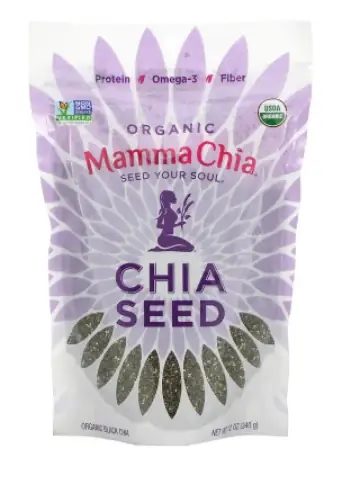
- Certified organic & non-GMO
- 340 g (12 oz)
- Dependable brand
Here are pumpkin seeds that come from a reputable brand:
Raw Pumpkin Seeds by NOW Foods
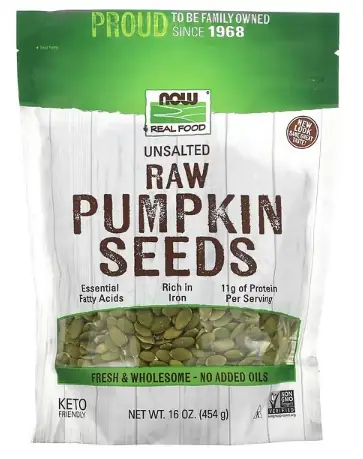
- Non-GMO
- 454 g (16 oz)
- Crunchy and nutritious
- Can be eaten raw or, to improve their taste, roasted and salted
Buckwheat flour is particularly rich in Mg and has a pleasantly sweet taste:
Whole-Grain Organic Buckwheat Flour by Bob’s Red Mill
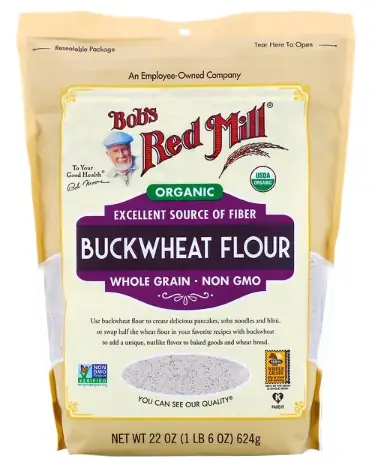
- Well-known highly reputable brand
- 624 g (22 oz)
- Certified Organic & GMO
- 100 % Whole Grain
Use whole-grain spelt (a type of wheat with a tough magnesium-rich hull) flour instead of the regular white wheat flour for your home-made cakes, pies, and pizza:
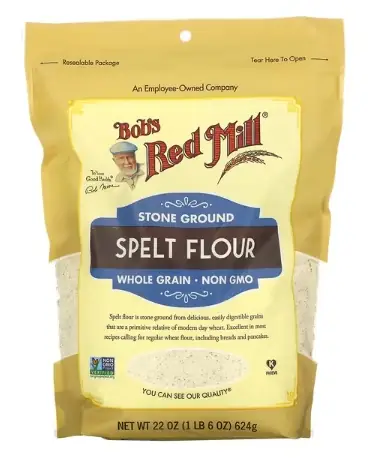
- 624 g (22 oz)
- Non-GMO
- Stone-ground
Here is one of the most popular Brazil nuts products:
Raw Brazil Nuts by Bergin Fruit and Nut Company
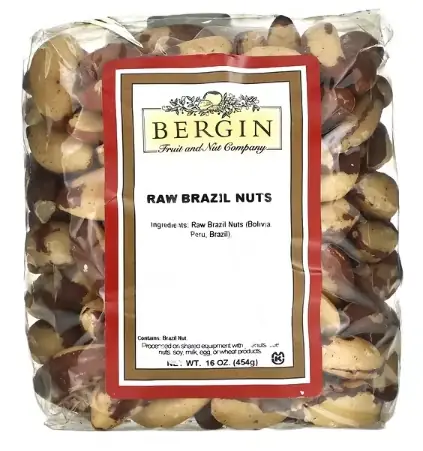
- Dependable brand
- Affordable price
- Countries of origin: Brazil, Bolivia, Peru
- 454 g (16 oz)
And here is magnesium-rich high-quality dark chocolate that tastes extremely good:
Dark Chocolate by Endangered Species

- 88% cocoa
- Fairtrade
- 85 g (3 oz)
- Non-GMO & gluten-free
4. What Are the Benefits of Magnesium Supplements
The benefits of taking magnesium using food supplements are easy to see: if your diet is not rich in nuts, buckwheat, and seeds, you are very likely to get lower Mg quantities from food than your body actually needs. Supplements with this mineral are, therefore, the only way to avoid a deficiency of Mg. What’s more, as your body does not store Mg for future use and only retains it for current needs, you need to use Mg supplements all your life.
What types of Mg supplements to choose? A 2017 article states that regardless of the type of magnesium supplement you decided on, the bioavailability of Mg can be significantly impaired if you simultaneously eat food that is rich in:
- Hemicellulose (nuts, legumes, and whole grains)
- Cellulose (legumes, peas, cabbage, nuts, roots, apple skins)
- Oxalates (almonds, cashews, beets, cocoa, buckwheat)
- Phytates (grains, legumes, nuts, beets, carrots)
- Potato starch
In other words, the very foods that are rich in Mg in the first place also contain compounds that inhibit its absorption. It is for this reason Mg from food sources is not absorbed in full.
What’s more, if you take high doses of other minerals (such as calcium, phosphorus, iron, copper, manganese, and zinc) together with Mg supplements, its absorption will also be negatively affected. To make matters worse, older people can absorb fewer quantities of Mg from both food sources and dietary supplements.
On the bright side, people who are deficient in Mg absorb this mineral much better than healthy individuals. There are also components of food that promote the bioavailability of magnesium. Among them are:
- Proteins (meat, whey)
- Resistant starch (wholegrain cereals, nuts, beans)
- Short-chain fructooligosaccharides (onions, asparagus)
- Resistant maltodextrin (rice, corn)
- Inulin (bananas, asparagus, onions)
It is therefore recommended that you take your Mg supplements with a piece of banana, some asparagus, eggs, meat, or whey protein like this one:
Chocolate Whey Protein + Probiotic by Lake Avenue Nutrition
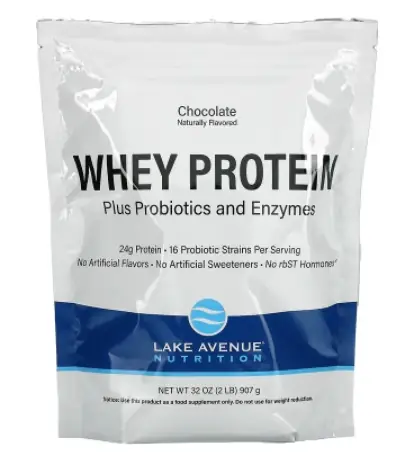
- High-quality
- Cocoa powder is used for the natural flavor
- Features 16 probiotic strains to improve gut health
- Includes enzymes that help digestion
5. What Magnesium Supplement to Choose?
As of now, there is no fully conclusive research evidence as to which Mg supplement offers the highest bioavailability.
In a 2003 study, it was demonstrated that Mg citrate and Mg amino-acid chelate are a bit better absorbed by the body compared to Mg oxide. A 2001 study also proved that Mg chloride, lactate, and aspartate have higher bioavailability compared to Mg oxide. In a 2004 study, it was shown that Mg gluconate offered higher absorption compared to fumarate and chloride.
In general, it is believed that the bioavailability of Mg taken from organic salts is slightly higher than that of inorganic Mg compounds. Thus, to get the full benefits of magnesium, use tablets or capsules that contain:
- Mg aspartate
- Mg citrate
- Mg glycinate
- Mg lactate
- Mg malate
- Mg taurate
From the viewpoint of bioavailability, there are no marked differences between all these compounds. Thus, if you wonder, what are the special benefits of magnesium glycinate, citrate, or lactate, the truthful answer is: they are equally good for your health.
Here is one of the most popular Mg supplements on iHerb:
Magnesium Citrate by NOW Foods
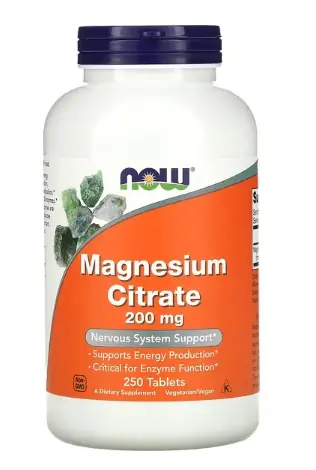
- 250 tablets
- Each tablet contains 200 mg of Mg in the form of magnesium citrate
- Benefits of this form include high bioavailability and optimal dosage
- Reputable brand
There is a popular theory that vitamin B6 can improve Mg absorption. Thus, you might prefer a supplement that includes both these compounds, like this one:
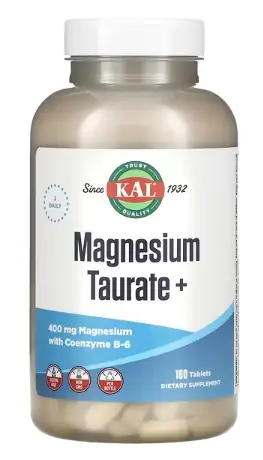
- 180 tablets
- Each tablet contains 200 mg of Mg and 700% of the required daily value of vitamin B6
- Among the additional benefits of this magnesium B6 formula is that it features extracts from bioactive herbs and roots that improve immunity
Selenium and vitamin D are also known to boost Mg absorption. Here are the highly popular supplements with these compounds:
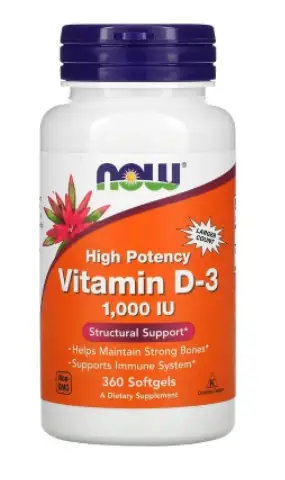
- Dependable brand
- 360 softgels filled with olive oil for optimal bioavailability
- 1,000 IU per softgel
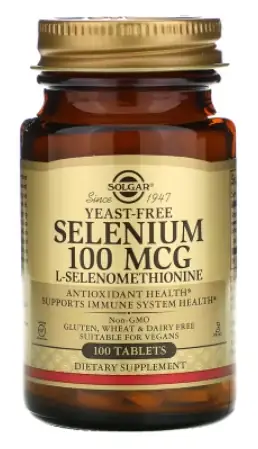
- Highly bioavailable form
- 100 tablets
- Each tablet contains 100 mcg of selenium
6. Is It Possible to Overdose on Magnesium?
You can eat any quantities of magnesium-rich foods like chia seeds and buckwheat without any risk of overdosing Mg: in healthy people any excess of this mineral from food sources is very quickly excreted by the kidneys. Still, overuse of dietary supplements with Mg can lead to diarrhea, nausea, and abdominal cramps.
Extremely high doses of Mg (more than 5,000 mg per day) can cause coma, cardiac arrest, and death: this mineral should not be treated lightly.
The tolerable upper intake of Mg from dietary supplements for both women and men older than 9 is set at the level of 350 mg per day. This means that you are extremely unlikely to experience any side effects from Mg supplements if you do not exceed this daily dose.
For men who are older than 19 this tolerable upper intake from supplements (350 mg) is lower than the recommended daily allowance (400 mg) which means that they need to combine both dietary supplements and food sources of Mg.
7. Benefits of Magnesium Bath Flakes
Mg bath flakes (better known as Epsom salt) contain magnesium sulfate. When dissolved in water, it releases ions of Mg. There is a popular theory that if you take a bath in such water, Mg will be absorbed through your skin.
Unfortunately, there is little or no scientific evidence that Mg can really be absorbed in this way in any measurable quantities. Thus, baths with Epsom salt are not a viable way to prevent Mg deficiency. The relaxing effect of them is, most likely, caused by hot water, not the salt itself.
Still, if you want to have first-hand experience of Epsom salt baths, here is one of the highest-rated products with this compound on iHerb:
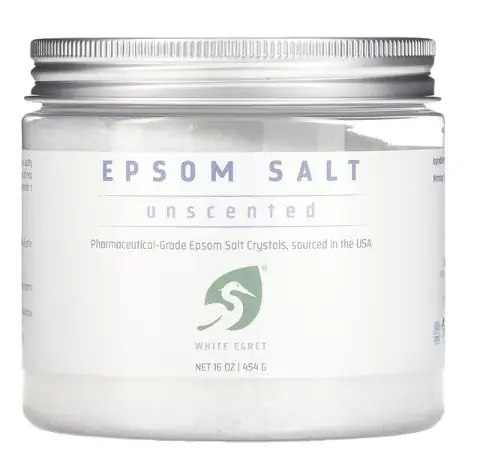
- 454 g (16 oz)
- Unscented
Now you know all about the benefits of magnesium for health and various supplements with this mineral. Do not neglect a healthy diet and regular physical exercise: take care and see you soon!